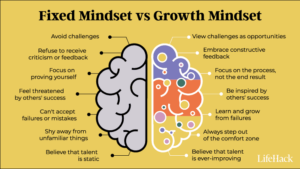EQ Check-In: Key Questions to Elevate Your Emotional Intelligence & Enhance Your Success
Did you know that Emotional Intelligence (EQ) is one of the strongest predictors of success, both personally and professionally?
Having a high EQ is the ability to truly connect with and empathize with others. Helping you be a better leader, communicator, and relationship builder. Yet, what does that look like in real-time?
Here are 9 characteristics of Emotionally Intelligent people that help them navigate social and emotional situations effectively:
1. Self-awareness: Being aware of their emotions, thoughts, and behaviors, and understanding how these influence and impact their interactions with others.
2. Emotional regulation: They have the ability to manage their emotions effectively. They don’t suppress their feelings, but rather understand and control them, especially under pressure or in challenging situations.
3. Empathy: They are able to understand and share the feelings of others, which helps them connect on a deeper level and respond appropriately to others’ emotions in the moment.
4. Motivation: They are self-motivated, resilient, and able to pursue goals despite obstacles or setbacks. They are not just driven by external factors like money or recognition, but also by intrinsic values, purpose, and passion.
5. Social skills: They are skilled at building and maintaining relationships. They are good communicators, adept at conflict resolution, and capable of cooperating with others to work towards common goals.
6. Adaptability: Emotionally intelligent people are flexible and adapt well to change. They are open-minded, willing to consider alternative perspectives, and can adjust their behavior according to different situations or people.
7. Assertiveness: They can express their thoughts, feelings, and needs in a direct, non-confrontational way. This assertive communication helps them establish boundaries while maintaining respect for others.
8. Problem-solving: They are effective at managing and resolving problems, especially those involving emotions. They don’t avoid or ignore problems but rather address them directly and constructively.
9. Optimism: They maintain a positive attitude even in difficult situations. This optimism helps them to see opportunities where others might see obstacles, and it fosters resilience in the face of adversity.
By cultivating these characteristics, you can enhance your emotional intelligence and improve your relationships, both personally and professionally.
So how can you check your own EQ?
Here are 9 questions you can ask yourself to see how strong your emotional intelligence is and how you can continually improve your EQ each day.
1. Do you often find yourself aware of your own emotions?
Improvement Tip: Practice mindfulness and meditation. This helps enhance your self-awareness, enabling you to recognize your emotions as they occur. Journaling your feelings and thoughts can also be an effective way to enhance self-awareness.
2. How easily can you manage your emotions under stress or in conflicts?
Improvement Tip: Develop healthy stress management strategies. This could include breathing exercises, physical activity, or simply taking a break when you feel overwhelmed. Additionally, learning conflict resolution skills can help you navigate stressful interpersonal situations.
3. Are you able to recognize emotions in others and empathize with them?
Improvement Tip: Practice active listening and focus on the person you are interacting with. Try to understand their point of view and feelings, without making judgments. This helps build empathy and emotional understanding.
4. Do you often find yourself overreacting or reacting impulsively to situations?
Improvement Tip: Practice patience and try to pause before reacting. This pause can give you the opportunity to process the situation and your emotions, leading to more thoughtful and controlled responses.
5. How often do you express your feelings in a clear, non-confrontational manner?
Improvement Tip: Learn about and practice assertive communication. This involves expressing your feelings and needs in a respectful manner, which can reduce conflict and enhance understanding in your relationships.
6. Can you maintain motivation and focus when facing setbacks or obstacles?

7. Are you able to adapt your emotions and behaviors according to different situations or people?
Improvement Tip: Practice flexibility and learn to appreciate different perspectives. This can help you adapt to various social and emotional contexts, improving your interactions with different types of people.
8. Do you often validate and respect others’ feelings, even when they are different from yours?
Improvement Tip: Practice empathy and validation. Try to understand others’ feelings from their perspective and acknowledge their emotions, even when you don’t necessarily agree.
9. Are you usually able to maintain positive relationships, both personally and professionally?
Improvement Tip: Invest time in building and maintaining relationships. Effective communication, conflict resolution skills, and empathy can greatly contribute to positive relationships in all areas of life.
Remember, emotional intelligence is a skill that can be learned and improved with practice. So even if you find areas where you need improvement, with persistence and effort you can definitely enhance your EQ.
If you looking to enhance your EQ to be the best leader you can be, take your Dignify survey using the code: NECTAR-L916. You’ll discover your top 5 Dignity traits that are authentic to how you communicate.
Understand your emotional drivers and what’s blocking your ability to connect with others effectively and successfully.


